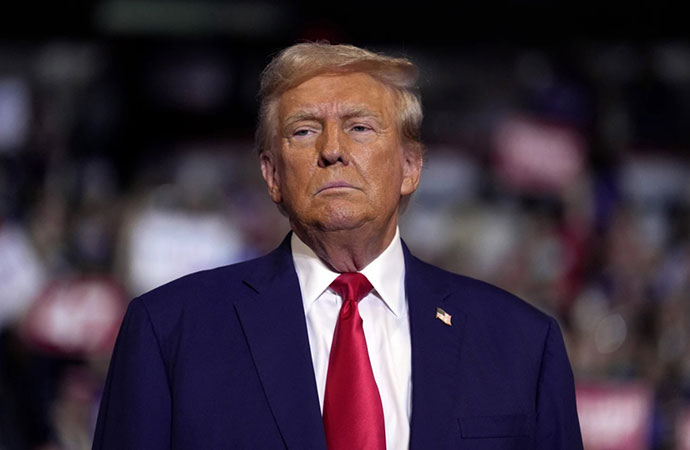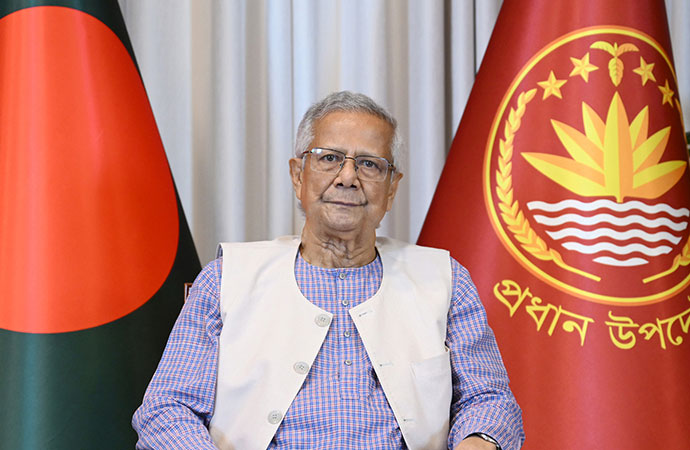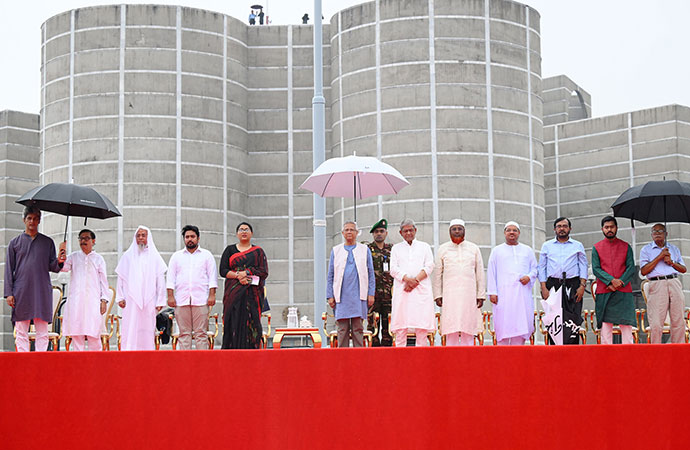World this week

US President Donald Trump. Photo: AP/UNB
US President Donald Trump signed an executive order Wednesday (Aug. 6) to place an additional 25% tariff on India for its purchases of Russian oil, bringing the combined tariffs imposed by the United States on its ally to 50%. The tariffs would go into effect 21 days after the signing of the order, meaning that both India and Russia might have time to negotiate with the administration on the import taxes. New Delhi reiterated that such actions are "unfair, unjustified and unreasonable," and asserted that it will take all necessary steps to protect its national interests.
Until recently, India was seen as an alternative to China by American companies looking to relocate their manufacturing. In 2024, the US ran a $45.8 billion trade deficit in goods with India, meaning America imported more from India than it exported, according to the U.S. Census Bureau. American consumers and businesses buy pharmaceutical drugs, precious stones and textiles and apparel from India, among other goods.
A volcano in far eastern Russia erupted for the first time in more than 500 years, which experts say may be linked to a massive earthquake that hit the country last week The Krasheninnikov Volcano in Kamchatka threw up an ash plume up to six kilometres (3.7 miles) high overnight. There were no threats to populated areas, Russia's emergency ministry said. Hours later, another large earthquake in Russia led to tsunami warnings in three areas of the peninsula.
Both events may be connected to a massive 8.8 magnitude earthquake which hit a similar area last week, which caused tsunami warnings as far away as French Polynesia and Chile. Russian experts had warned strong aftershocks were possible for several weeks after the July 30 earthquake - which was one of the strongest ever recorded. The last recorded eruption of Krasheninnikov was in the 15th century, according to the head of the Kamchatka Volcanic Eruption Response Team.
Pakistan has started to deport documented Afghan refugees ahead of its deadline for them to leave, according to the United Nations, in a move that could see more than 1 million Afghans expelled from the country. The United Nations High Commissioner for Refugees said that it had received reports of arrests and expulsions of legally registered Afghans across the country before Pakistan's September 1 deadline for them to leave. The UNHCR said that sending the Afghans back in this way was a breach of Pakistan's international obligations.
"UNHCR is calling on the government to stop the forcible return and adopt a humane approach to ensure voluntary, gradual, and dignified return of Afghans," it said in a statement. The voluntary return of the documented refugees shall commence forthwith, according to an order from Pakistan's Interior Ministry. It said the formal deportation process will start after the deadline. Many Afghans have been settled in Pakistan since the 1980s, to escape cycles of war in Afghanistan.
Hezbollah, the militant group based in southern Lebanon, sharply criticized the Lebanese government's decision to begin a process aiming to disarm the Iran-backed group this year, saying it "fully achieves" neighbouring Israel's interests. Hezbollah also said in a statement it is ready for a dialogue over its weapons, adding that the Lebanese government should work on "liberating" areas in the country's south still occupied by Israel following a 14-month war with Hezbollah and freeing Lebanese who are still held there.
On Tuesday (Aug. 5) the Lebanese government asked the national army to prepare a plan in which only state institutions will have weapons by the end of the year. Hezbollah was formed in the 1980s with the aim of freeing the south of Lebanon from Israeli occupation, something it largely managed to achieve over the next two decades. It is also a major Shiite political party that runs a wide network of social institutions.

























Leave a Comment
Recent Posts
Religion and Politics: A Toxic ...
At Dhaka University, cafeteria workers have been told not to wear shor ...
Enayetullah Khan joins AsiaNet ...
AsiaNet’s annual board meeting and forum was held in Singapore, ...
In a New York minute
Many leaders back a UN call to address challenges to ..
Defaulted loans at Non-Bank Financial Institutions ( ..
How the late Zubeen Garg embodied cultural affinitie ..